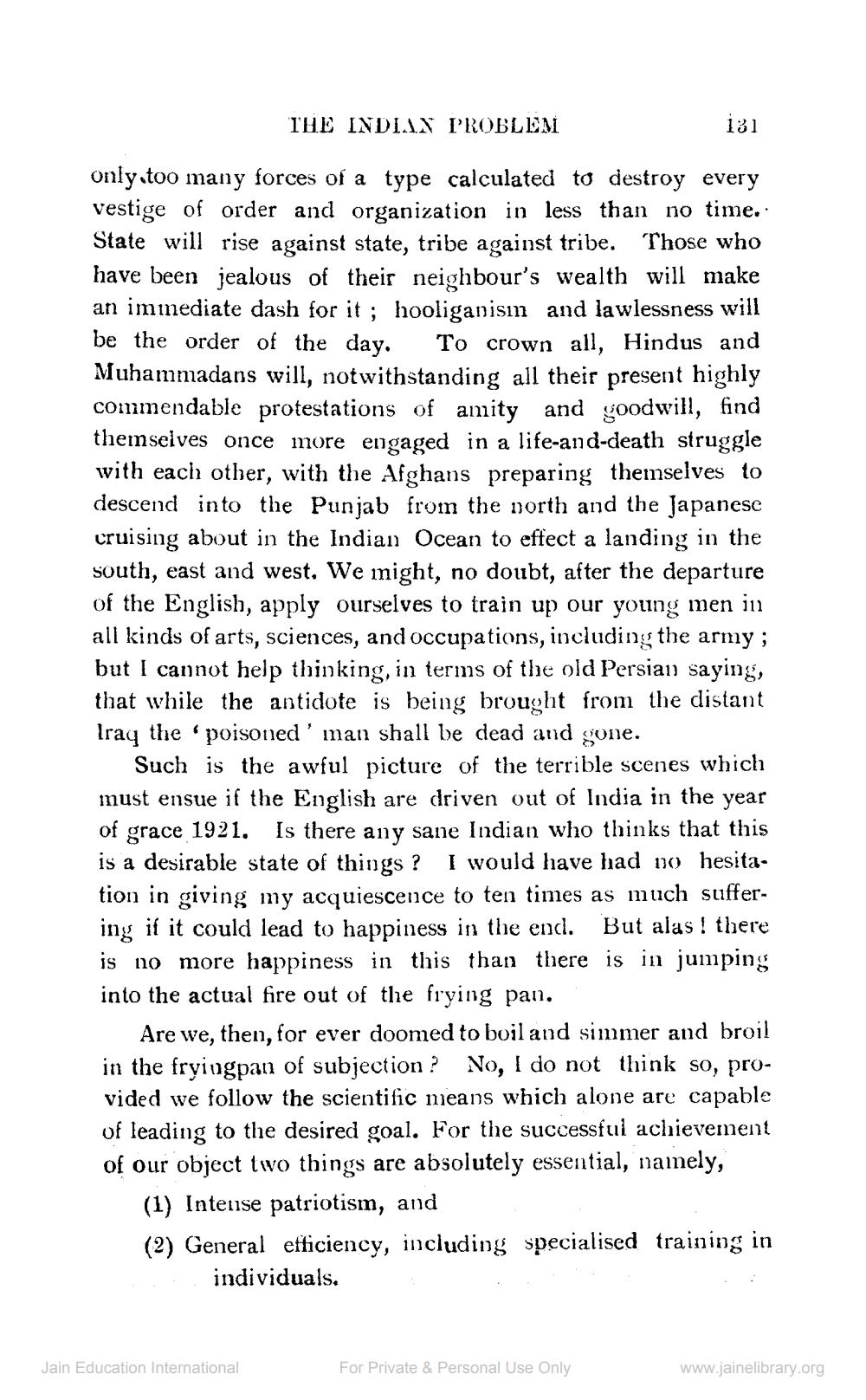________________
THE INDIAN PROBLEM
131
only too many forces of a type calculated to destroy every vestige of order and organization in less than no time. State will rise against state, tribe against tribe. Those who have been jealous of their neighbour's wealth will make an immediate dash for it ; hooliganism and lawlessness will be the order of the day. To crown all, Hindus and Muhammadans will, notwithstanding all their present highly commendable protestations of amity and goodwill, find themselves once more engaged in a life-and-death struggle with each other, with the Afghans preparing themselves to descend into the Punjab from the north and the Japanese cruising about in the Indian Ocean to effect a landing in the south, east and west. We inight, no doubt, after the departure of the English, apply ourselves to train up our young men in all kinds of arts, sciences, and occupations, including the army ; but I cannot help thinking, in terms of the old Persian saying, that while the antidote is being brought from the distant Iraq the poisoned' man shall be dead and gone.
Such is the awful picture of the terrible scenes which must ensue if the English are driven out of India in the year of grace 1921. Is there any sane Indian who thinks that this is a desirable state of things ? I would have had 10 hesitation in giving my acquiescence to ten times as much suffering if it could lead to happiness in the end. But alas ! there is no more happiness in this than there is in jumping into the actual fire out of the frying pan.
Are we, then, for ever doomed to boil and simmer and broil in the fryingpan of subjection ? No, I do not think so, provided we follow the scientific means which alone are capable of leading to the desired goal. For the successful achievement of our object two things are absolutely essential, namely,
(1) Intense patriotism, and (2) General efficiency, including specialised training in
individuals.
Jain Education International
For Private & Personal Use Only
www.jainelibrary.org




